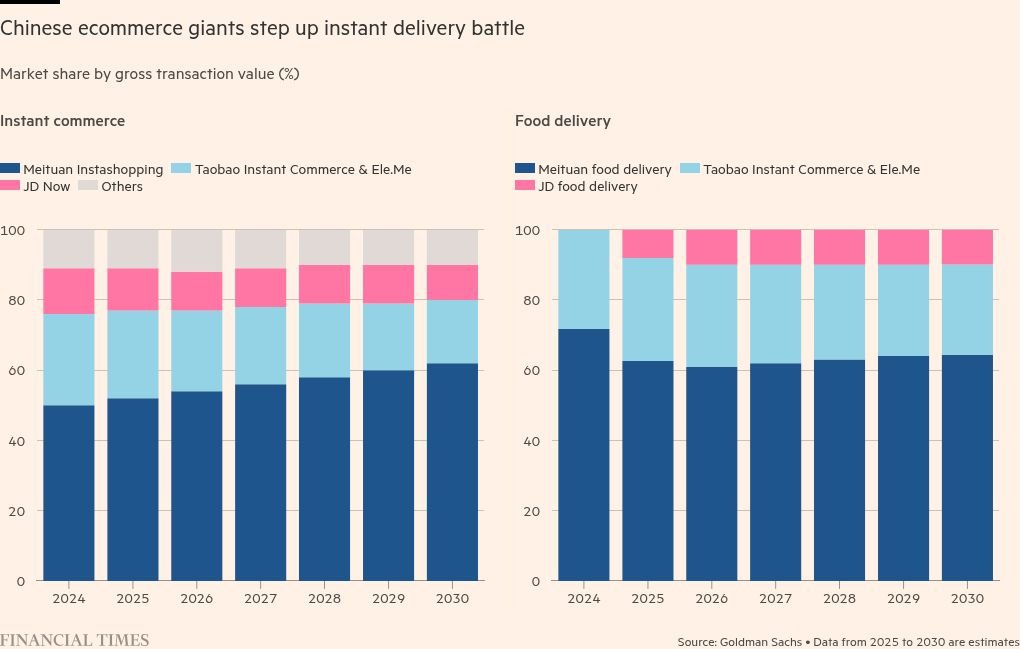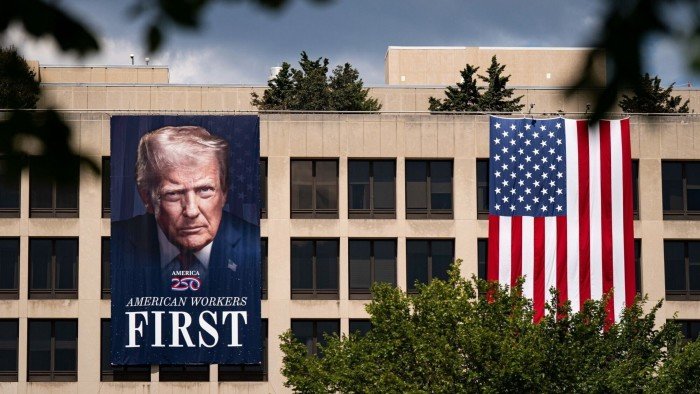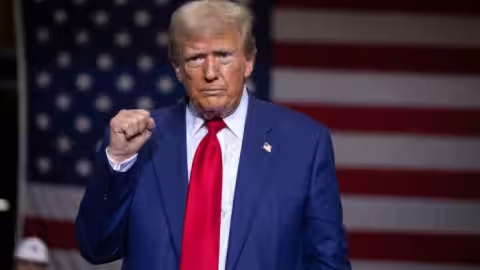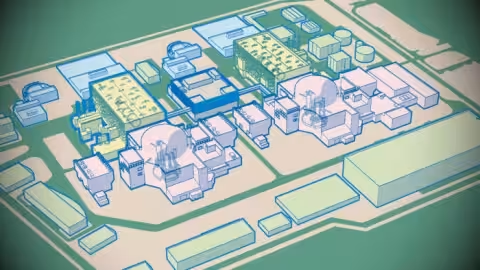Chinese ecommerce giants JD.com and Alibaba have ignited a battle for the country’s fast-growing instant retail market, luring shoppers with huge discounts in a push to grab market share amid weak consumer spending.
The two groups have launched rapid delivery offerings in recent months, supplying food and consumer staples within 30 minutes via their fleet of drivers. That has intensified competition in a sector that has largely been dominated by Beijing-based Meituan for the past few years.
Alibaba is ploughing $7bn into promoting its Taobao Shangou service, while JD.com is investing $1.4bn over the next year to expand its food delivery business, as they fight it out to become China’s leading “everyday app” for transactions across goods and services.
Chinese cities are plastered with advertisements promoting Alibaba and JD.com’s new services, with the latter tempting shoppers with coffee and bubble tea for as little as $0.25.
Analysts say the move is reminiscent of China’s “coupon war” 10 years ago, when tech groups Baidu and Alibaba and start-ups Meituan and Dianping launched aggressive subsidy campaigns in a fast-growing consumer market.
“We’re back to the 2016 price war,” said a senior executive at one of China’s leading delivery companies. “For years, these companies stayed in their lanes. Now, they’re once again stepping on each other’s turf with subsidy-fuelled strategies.”
China’s fledgling instant shopping market is forecast to hit Rmb1.5tn ($209bn) by 2030, based on the total sales potential, up from about Rmb600mn in 2024, according to Goldman Sachs’ analysts. They estimated that the three companies spent a combined $3bn on food delivery and instant retail in the second quarter.
But analysts warn the fight for China’s instant delivery crown could be long and costly for the companies. Unlike the first wave of subsidy wars, the current battle is taking place against a backdrop of subdued consumer sentiment and a weak economy.
“The delivery market is relatively mature, so there isn’t the same level of upside as there was 10 years ago,” said Robin Zhu, internet analyst at Bernstein.
The delivery fight has wiped 25 per cent off Alibaba’s share price since a mid-March high, as investors worry that the intensifying competition will be a long-term drag on profits. Meituan’s share price has fallen 35 per cent and JD.com’s 31 per cent in the same time period.
Meituan, which has about 70 per cent of China’s food delivery market, has vowed to defend its business “at any cost”. The group has increased consumer discounts and is investing in centralised kitchens, where merchants prepare food at premises it operates in an effort to improve food safety and cut delivery costs.
Alibaba and JD.com have been emboldened by a recent government subsidy campaign for consumers to upgrade their electronics that excluded Meituan and PDD Holdings’ platforms.
JD.com’s high-profile push into the food delivery market since February has seen it grab a significant share of that market. By June, it had hit an average of 25mn daily food delivery orders.
The move has been led by its founder and chair Richard Liu, marking a return to public for the tech mogul after he steered the company from overseas since stepping down as chief executive in 2022.
Alibaba’s new Taobao Shangou service, created by integrating its food delivery business Ele.me with its retail platforms Taobao and Tmall, has also increased competition.
“This restructuring has made Alibaba a more potent competitor,” said one Meituan executive.
Competition for riders has led Meituan to improve social security benefits for its couriers after JD.com rolled out driver incentives as part of its February launch.
Last month, Meituan founder and chief executive Wang Xing publicly called for an end to the subsidy battles, urging regulators to intervene to stop the companies from distorting the market with their spending power.
“I believe it’s the job of the regulator to stop the irrational and unhealthy subsidy competition, and our job is to win the fight as long as it’s allowed to go on,” he said.
His comments came after antitrust officials met executives in May from several delivery groups to encourage “healthy competition”. “Regulators are more focused on pricing battles in electric vehicles than consumer delivery,” said one ecommerce executive.
Chelsey Tam, senior equity analyst at Morningstar, said Meituan’s subsidies should help it stem losses, estimating that its share of the food delivery market could fall to 60 per cent over the next decade.
“Meituan still has the best service quality and assortment, so it is important to keep subsidising to solidify consumer loyalty,” said Tam.
It is unclear how long the latest retail fight will last, experts say. “The big players all have deep pockets to sustain this fight,” added Bernstein’s Zhu. “But whoever emerges on top may find it a pyrrhic victory.”
Additional reporting by Haohsiang Ko in Hong Kong























